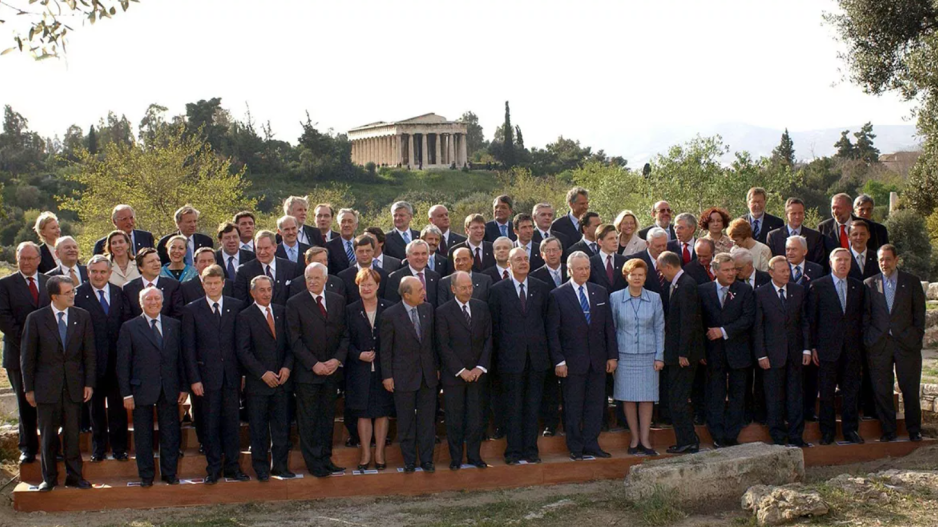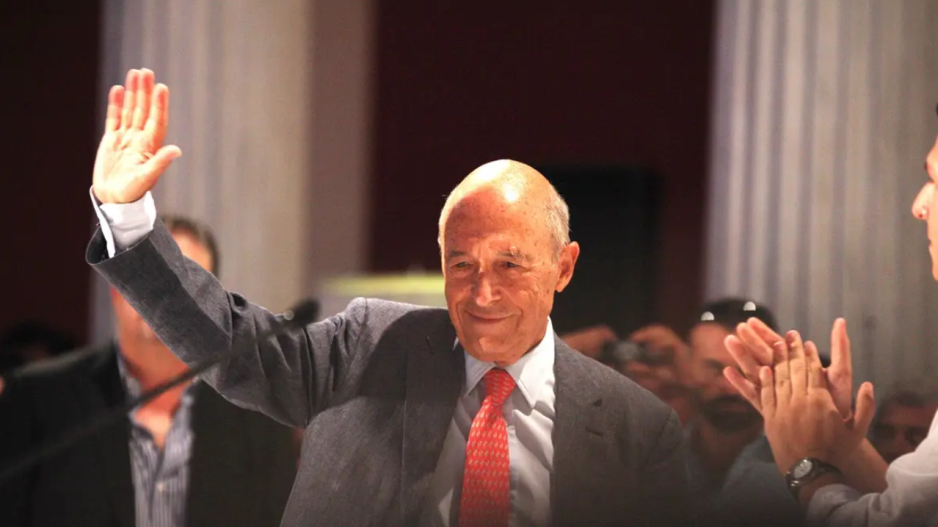In Memoriam: How Kostas Simitis’s Strategy Brought Cyprus into the EU
The accession of Cyprus to the EU has been seen by many as a momentous achievement in Simitis’s time as Prime Minister.
In the late 1990s and early 2000s, few Greek politicians were more instrumental in strengthening Greece’s role within the European framework than Prime Minister Kostas Simitis. During his tenure (1996–2004), Simitis worked tirelessly to advance Greece’s economic and diplomatic standing, and one of his administration’s most notable achievements was supporting and facilitating the Republic of Cyprus’s accession to the European Union in 2004.

Throughout the 1990s, Cyprus’s potential membership in the EU became a highly debated issue. While many European leaders viewed Cypriot accession favorably in principle, the island’s political division presented diplomatic challenges. Turkey’s longstanding presence in the North and the ongoing dispute between Greek Cypriots and Turkish Cypriots placed the issue firmly on the agenda of the EU, the United Nations, and various international bodies.
Kostas Simitis, known for his technocratic approach and pro-EU stance, recognized that Greece’s support would be critical in galvanizing European consensus on Cyprus. He and his foreign minister at the time—initially Theodoros Pangalos, followed by George Papandreou—engaged in intensive negotiations with European counterparts. Their goal was twofold:
-
Ensure that Cyprus’s unresolved political dispute would not indefinitely block its accession to the EU.
-
Use Greece’s position within the EU to advocate robustly for Cypriot membership.

-
Helsinki European Council (December 1999):
One of the turning points came during the European Council summit in Helsinki. Despite tensions and outstanding issues regarding Turkey’s own EU candidacy, Prime Minister Simitis managed to secure language in the summit’s conclusions stating that the solution of the Cyprus issue was not a strict prerequisite for the island’s accession. This shift in EU policy was critical. It untied Cyprus’s EU membership from the immediate resolution of its decades-long division.
-
Negotiations and Diplomatic Pressure (2000–2002):
Under Simitis’s leadership, Greek diplomats worked closely with Cypriot officials to ensure smooth progress on the accession negotiations. Greece stressed that Cyprus met the Copenhagen criteria (the requirements for EU membership), reinforcing the argument that political disputes should not overshadow the country’s qualifications in terms of democracy, the rule of law, and economic stability.
-
Copenhagen European Council (December 2002):
The Copenhagen summit formally confirmed that Cyprus would join the European Union alongside other countries from Central and Eastern Europe in the 2004 enlargement. Simitis’s government hailed the decision as a diplomatic triumph, emphasizing that Cyprus’s integration would promote peace, security, and prosperity in the Eastern Mediterranean.
-
Accession Treaty Signing (2003) and Entry into Force (1 May 2004):
Although Kostas Simitis left office in March 2004 (just prior to Cyprus’s formal entry into the EU), the groundwork laid during his administration ensured that Cyprus became a full member on 1 May 2004.
Although the Cypriot question remains unresolved, with the island still divided, the accession of Cyprus to the EU has been seen by many as a momentous achievement in Simitis’s time as Prime Minister.
Over the years, Kostas Simitis has continued to be recognized for his pro-European vision, emphasis on economic modernization, and unwavering commitment to EU integration. His era not only reshaped Greece’s own role in Europe—through the successful adoption of the euro in 2001—but also left an indelible mark on the European trajectory of Cyprus.
Kostas Simitis passed away on January 5, 2025, at the Corinth Hospital, at the age of 88. Following a decision by the Greek government, a four-day period of national mourning was declared. He was laid to rest today, January 9, with the honors accorded to a sitting Prime Minister. The funeral was attended by the President of the Republic of Cyprus, Nikos Christodoulides, as well as the Speaker of the House of Representatives, Annita Demetriou.






